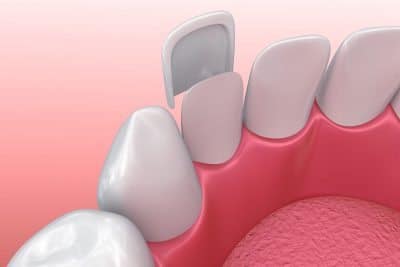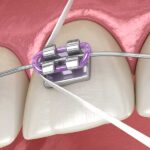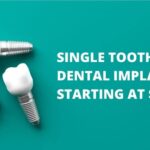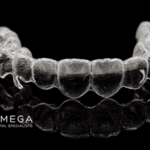The Advantages Of Dental Crowns

From getting a simple filling to having tooth bonding performed or having a wide range of other types of dental procedures, today’s modern dentistry has many options for those who require any number of restorative care solutions. That said there are several advantages that are worth considering when it comes to having a dental crown. It is always important to be evaluated to determine if you are eligible for a dental crown. This is because there are certain circumstances in which a dental crown may not be the best choice or even possible. First, let’s take a look at some of the general advantages associated with having a dental crown.
Table of Contents
Long-Term Protection of The Tooth after Root Canal
Decades of successful application have shown that a dental crown is highly effective at providing durable and long-lasting protection to a tooth that has been heavily broken down, damaged or root canal treated. This by itself is the reason to seriously consider having a crown.
Aesthetically Appealing Look
Another very desirable advantage of having a dental crown or veneer is that you can improve the shape, color and overall look of your teeth. This is due largely in part to the fact that porcelain has a naturally white and brilliant appearance and is far more resistant to stains as compared to other composite dental materials.
Long-Lasting Dental Restoration
Equally impressive is the fact that a typical dental crown will last longer than virtually any other type of dental restoration available today. This even includes implants and various types of fillings. However, it should be noted that nothing quite compares to natural teeth. Dental crowns are sometimes preferred because they protect the remaining portion of the natural tooth over the long-term.
Adequate Access For A Crown
Now that we have discussed the advantages of having a crown it may be worth looking at who is indeed eligible and who may not be eligible to have a crown. For example, there are situations where patients may have inadequate access for a crown. This would be the case with a tooth that is at an angle or very far back in the mouth where accessibility is difficult or not possible. While these cases are rare, they do happen. In other cases, a patient simply may not be able to open their mouth wide enough to allow the work to be completed.
Also, the tooth itself must have vitality and be able to accept a crown. In some situations, a better choice may be a root canal followed by a crown or tooth extraction followed by dental implants. Your periodontist or dental care provider will know for sure. As a reminder, even with crowns, it is essential to maintain good oral hygiene and care to keep the margins and all other areas clean and free of plaque or tartar.
In fact, it is widely accepted that plaque can and will build up over time around a crown. This is essential to understand because this type of condition left untreated can shorten the life of the crown and the tooth in question. Preventing gum disease and decay requires constant care and attention for your teeth and crowns. Your dental care provider or periodontist can share with you a wealth of information when it comes to understanding how to care for your mouth and maintain the best possible oral hygiene at all times. That said it is the patient’s responsibility to make sure that they follow through and do what is necessary to keep their teeth and gums in great condition.
Patients considering crowns must also understand that general medical condition will always be taken into account. For example, if a patient is not mentally or even physically able to handle the treatment for any number of reasons, then a crown may not be the best option. This is another situation where consulting with your periodontist, or dental care provider will likely provide the answer.
Another case where a dental crown may not be the best choice is when there is poor periodontal support present. This is evident when a tooth has a limited amount of bone holding it in place. Equally of concern is when a tooth has an excess mobility that indicates it may not be a good candidate to support a crown. This is also a time when extraction and a dental implant may be the better alternative.
If a tooth does not have an opposite or opposed tooth to make contact with, it may also not be a good candidate to support a crown. An unopposed tooth may require extraction as a way to better serve the patient. Conversely, when there is an opposite space that can be filled with a dental implant, then a crown may indeed be recommended for the tooth in question. Today more than ever before dental patients have a wide variety of choices when it comes to their dental health and wellbeing. A periodontist is a professional that specializes in periodontal disease prevention, dental implants, cosmetic dentistry and the application of dental crowns.
Helping Patients Enjoy Better Dental Health
Those who feel they may require a dental crown should consult with their periodontist or general dentistry care provider to come up with a good plan of action. Crowns have been around for a long time and have a long and successful track record of helping patients enjoy better dental health. Because crowns are strong, resilient, durable and long lasting they make smart financial sense for those wishing to retain their natural teeth for as long as possible. The crown is unique in that it can help to preserve a tooth and enable it to last far longer than it would otherwise. With so much to offer it is clear to see why a growing number of people are choosing dental crowns in today’s world of modern dentistry.




